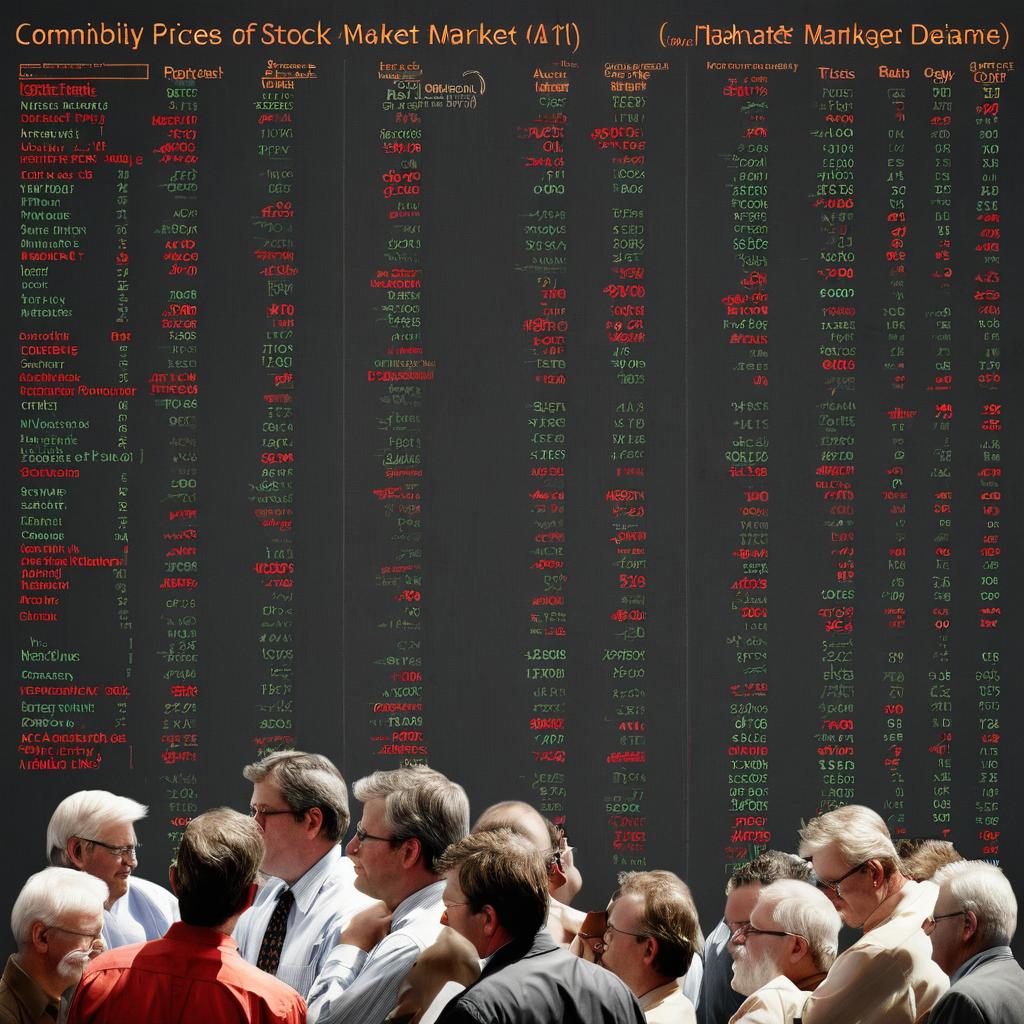The relationship between commodity prices and stock market performance is complex and multifaceted, influenced by various economic, geopolitical, and market-specific factors. Understanding this relationship is essential for investors seeking to diversify their portfolios and manage risk effectively.

Factors Influencing Commodity Prices
1. Supply and Demand Dynamics:
- Commodity prices are largely driven by supply and demand fundamentals. Factors such as weather conditions, geopolitical tensions, and production disruptions can impact supply levels, while changes in global economic activity and industrial demand influence demand dynamics.
2. Macroeconomic Indicators:
- Economic indicators, including inflation rates, interest rates, and currency movements, can affect commodity prices. For example, rising inflation may lead to increased demand for commodities as a hedge against currency depreciation, driving prices higher.
Impact Commodity Prices on Stock Market Performance
1. Sectoral Exposure:
- Certain industries, such as energy, mining, and agriculture, are directly linked to commodity prices. Companies operating in these sectors may experience changes in profitability and stock prices in response to fluctuations in commodity prices.
2. Inflationary Pressures:
- Commodity price movements can influence inflationary expectations, which, in turn, affect interest rates and overall market sentiment. Higher commodity may lead to inflationary pressures, prompting central banks to tighten monetary policy, potentially impacting stock market performance.
Diversification Benefits
1. Portfolio Diversification:
- Including commodities in a diversified investment portfolio can help reduce overall portfolio volatility and enhance risk-adjusted returns. Commodities often exhibit low correlation with traditional asset classes such as stocks and bonds, providing diversification benefits.
2. Hedging Against Inflation:
- Commodities, particularly precious metals like gold and silver, have historically served as effective hedges against inflation. Investing in commodities can help protect purchasing power during periods of rising inflation, mitigating the erosion of real returns on stock investments.
Market Sentiment and Speculation
1. Investor Sentiment:
- Market sentiment plays a significant role in driving commodity and stock market performance. Positive sentiment regarding economic growth prospects or geopolitical stability can boost investor confidence, leading to higher commodity and stock market gains.
2. Speculative Activity:
- Speculative trading in commodity markets can amplify price movements and contribute to increased market volatility. Excessive speculation may lead to price bubbles or sharp corrections, impacting both commodity and stock market indices.
Conclusion
The relationship between commodity prices and stock market performance is influenced by a myriad of factors, including supply and demand dynamics, macroeconomic indicators, investor sentiment, and speculative activity. While commodities offer diversification benefits and serve as inflation hedges, their impact on stock market performance can vary depending on market conditions and sectoral exposures. Investors should carefully assess the interplay between commodity prices and stock market dynamics to make informed investment decisions and manage portfolio risk effectively.
